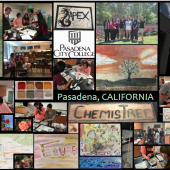
As a background for these student responses, I would first like to describe the distinguished program they are a part of at Pasadena City College (PCC). The Early Career Undergraduate Research Experience (eCURe) is a program at PCC that provides students with an undergraduate research experience in the natural or physical sciences at the onset of their scientific careers. This unique experience inspires enthusiasm for scientific research by introducing students to research projects with broader impact in terms of sustainability, energy, the environment and emerging scientific technologies. In this particular eCURe research group led by Dr. Jillian L. Blatti, students have devised methods of synthesizing sustainable paints and testing their resultant properties; they have transposed their tested methods into lesson plans to engage local high schools in scientific outreach efforts, inspiring the next generation of scientists and science educators in sustainability education. As part of this outreach effort, students collaborated with Penn State University’s Nanotechnology Applications and Career Knowledge (NACK) Network in their Remotely Accessible Instruments for Nanotechnology (RAIN) program to bring hands-on experience with advanced analytical equipment to high school students via the Internet, including a scanning electron microscope and atomic force microscope, which they used to analyze sustainable paints they crafted in the classroom. In these highly interdisciplinary and collaborative projects, PCC students are learning to integrate concepts from their science courses into a research-based setting, generating novel questions, designing experiments, analyzing the results, and communicating their science to a broad audience. This innovative community college research program has inspired our students at PCC to continue scientific research in sustainability that they have become passionate about as they transfer to four-year institutions. What follows is accounts of chemical research in sustainability in the chemistry research laboratories at Pasadena City College, the eCURe students’ ‘sense of place’, and how it impacted their views on sustainability research and education.
Continue ReadingThis paper examines the conceptualization and implementation of teaching inequality through placed-based and experiential learning while focusing on issues that impact the sustainability of communities through the effects of the social and historical constructs of race, class, and gender. The goal is to push students to rethink issues of sustainability in a more holistic way including social, economic, and political aspects to sustainability. In turn, students are empowered through a Freirian pedagogy to become “student-teachers” for the society in which they live in partnership with a local community organization to create public interactive history exhibits that create educational opportunities to both identify and document historical and current inequalities and their effects on the present moment and to encourage the community to engage with and analyze their own history in a manner to create meaningful dialogue and public discussion for the creation of a more equitable and sustainable society.
Continue ReadingChronicling a semester-long civic engagement project, this essay explores the efforts of a senior seminar course to collaborate with a local wilderness preservation organization. The essay reflects on the role of students in their communities, their connections to wilderness, and the challenges and rewards of civic engagement.
Continue Reading
Abstract: This photo essay reflects one sense of place from Mauna Kea.
Continue Reading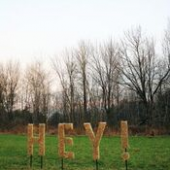
Abstract: With the challenge of exploring a particular rural site and responding with installations of type, students investigate the intersection of place, preconception, knowledge, experience and design. With a project named 4 (or 5) letters in a field, student teams participate with the changing conditions of a site and audience to alter the meaning of a place.
Continue Reading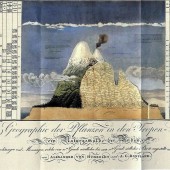
Book review for The Invention of Nature: Alexander von Humboldt’s New World by Andrea Wulf
Continue Reading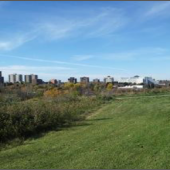
This paper provides a descriptive analysis of the experience of four doctoral students engaged in a collective project of place exploration at a midsize Canadian university. Under the methodological tradition of self-study, we contextualize concepts of place attachment and decolonization in order to investigate what it means to be interdisciplinary scholars of sustainability. We use storytelling and mobile discussion methods, alongside visual and mapping methods to disentangle our experiences and analyses of place, mobility, land, and scholarship. This reflective piece demonstrates that collaborative forms of scholarship such as this require deliberate moves toward community creation and place attachment within institutions of higher education. Through a process of collaborative investigation and writing, we have created spaces of caring academic scholarship rather than engaging in competitive and hierarchical university culture.
Continue Reading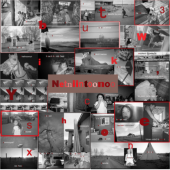
While place and culture endure, place and culture both change. This paper focuses on
the ways this paradox has shaped the idea of “resilience” for the Northern Arapaho people, and
the ways in which we have used it to guide educational programs. We first introduce “place” and
what it means to the Northern Arapaho people. We then offer three examples of culturally
responsive place-based programs that involve photography and changing technology. Finally, we
discuss the Arapaho word teiitooniine’etii (to live quietly, live calmly) and suggest that in both
enduring values, and adaptation to new technologies and times, we find resilience as a people.
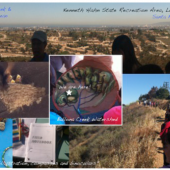
This postcard is inspired by my dissertation research at the Kenneth Hahn State Recreation Area and Ballona Wetlands in Los Angeles. I spent many months observing student tours and frequently was struck by many of the reactions and observations I mentioned in my postcard.
Continue Reading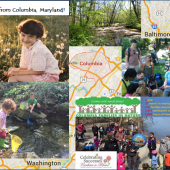
This “post card” reflects on the “senders” experiences of playing in nature during her childhood, her return to that same community with children of her own, observations about changing patterns of children’s free-play in nature, and the inspiration for and experiences of creating a family nature club to help families in her community connect with their social and ecological communities.
Continue Reading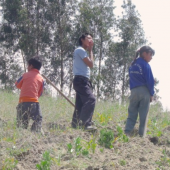
This article relates experiences with two informal education centres established in indigenous communities in Ecuador’s central highlands to the dynamics and ideas of ‘ecopedagogy’, suggesting that the critical, reflective and cooperative actions undertaken in these centres speak constructively to the liberatory and justice-focused practices of ‘Earth pedagogy,’ and to the development those practices foster of skills for a just and sustainable way-of-life. It draws on ethnographic fieldwork in the region that focused on indigenous struggle, land-related conflicts and water justice, and develops the idea of ‘to inherit/intend’ to capture the emergent qualities of ‘place’ as experienced in these two particular locales. Both ‘Centros de Formación’ – Education-Creation Centres – pursue conscious attempts to direct education toward a reflective engagement with place, position and struggles for social justice. In the process, they offer insights for processes of cooperation and resistance that counteract domination and marginalization.
Continue Reading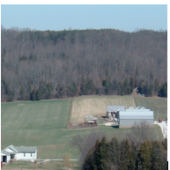
This paper focuses on understanding the collaborative process as a critical aspect of building community capacity to respond to change and uncertainty in the landscape. Can focusing on place-based relationship building enhance a community’s ability to make difficult land use decisions? Collaborative initiatives to preserve farmland and open space have emerged as a process that supports local involvement and ownership of community decisions; however, the variable success of these initiatives highlights the need to evaluate what factors influence individual support for collaboration. This study uses a case study to examine the role of sense of place, as well as other attitudinal and demographic factors, in determining support for collaborative efforts to preserve farmland. Drawing on analysis of responses to a survey of residents in Harrison County, Indiana from a period when the community faced intense growth pressures that threaten unique natural resources and farmland. The findings demonstrate that an individual’s sense of place and environmental attitudes positively influence support for key steps in the collaborative process, including the acceptance of strategies to address farmland loss.
Continue Reading
Formal classroom learning experiences that support sustainable behaviors outside the classroom necessarily must bridge students’ home and school lives, as knowledge and practice learned in the classroom is implemented outside of school. To this end, we study the impact of the Green Ninja Energy Tracker curriculum, which uses students’ home energy data in the classroom to promote engagement in climate change and conservation behaviors. Data is drawn from class observations, a focus group, and pre- and post- surveys of a pilot implementation of this curriculum in a diverse 12th-grade Earth Science classroom at an alternative school. We investigate what factors contributed to student engagement in learning about and participating in energy conservation behaviors. We found that students were engaged by the immediacy of tracking their energy use in near-real time, and were motivated by the economic benefits experienced as a direct result of changing their behaviors. In addition, students reported discussing and problem-solving energy use with their families, and surfaced considerations that informed which energy behaviors were implemented and why. Students also reported high levels of personal agency in taking action on climate change, but were pessimistic about the likelihood of society as a whole taking action. We suggest that this pilot demonstrates the potential power of connecting the varied places of students’ experience by bridging home and school lives through energy tracker software as a catalyst for developing scientific expertise and engagement, and supporting energy conservation behaviors.
Continue Reading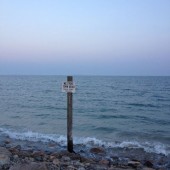
Effective sustainability education is constrained, in part, by an inability to consistently define what it is, who it is for, and how it can best address present-day concerns. Often reduced to a set of behaviors with a future orientation for intergenerational security, sustainability loses the immediacy and importance of issues like hunger, homelessness, and the impact of toxic industry practices on real people in real communities, despite the fact that these all represent foundational aspects of sustainability. Critical sustainability harnesses place and community to make connections between equity, ecology and economy explicit. Requiring a deep connection with the socio-ecological landscapes of our experiences, critical sustainability utilizes individual and community identities in working towards resilience. In this paper, we explore the ways that participatory action research (PAR) can leverage place and community to disrupt systems of power and privilege and demonstrate this approach as both effective pedagogy and a powerful orientation toward addressing community-level climate change adaptation. We contend that critical sustainability education requires sincere engagement with place, along with the shared, community-driven knowledge production that is the cornerstone of PAR.
Continue Reading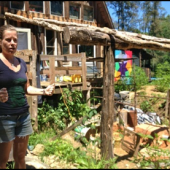
Place can be understood as space endowed with meaning, evoking notions of difference, connection, attachment, and emotion. As processes of modernity and globalization have increasingly homogenized cultural and natural landscapes, place is said to be ‘thinning’ or lost, linked to widening rifts between social and natural worlds. Such homogenization globally has sparked concerns, as people perceive landscape loss and increasing socio-ecological injustices. One such system of homogenization and unsustainability is industrial agriculture, a system that has shifted smaller scale, place-based, and diverse food systems to a global, mechanized one, distancing production from consumption, disrupting communities, and obscuring awareness, understanding, and care.
Yet, as consumer awareness increases and people desire to know where their food comes from and who produced it, inclusive place-based food systems can provide reconnections amongst producers, consumers, community, and the more-than-human world. In this paper, stemming from research in western North Carolina, we bring together literature from scholars of place, agro-food studies, education, and tourism to investigate the role of place in local food systems as well as the potential of small-scale sustainable agricultural places to serve as important educational spaces via community-based farm tourism. To better understand such potential, we draw on a study of the Blue Ridge Women in Agriculture High Country Farm Tour, an annual tour of small-scale sustainable working farms in the North Carolina High Country. Delving into participating producers’ philosophies, practices, and stories reveals passionate sustainable producers firmly rooted in place, while exploring consumer motivations for and impacts of participation makes a strong case for community-based farm tourism and other environmental tourism projects as an avenue for place-based education, community socio-ecological resilience, and sustainability across scales.
Continue Reading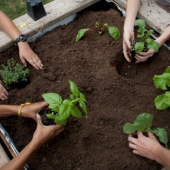
In consideration of the possibilities for place-based learning and resilience, this article offers reflections from the author’s praxis in regenerative neighborhood development in Austin, Texas from 2006 to 2015. Consistent with the themes of the Winter 2015 issue, the article considers psychological, social, political, and economic dimensions of place-based engagement, citizen action, and stewardship within the particular context of gentrifying urban landscapes and contested visions of sustainable cities. Although the author shares a particular situated experience, the themes explored are pertinent to others in the field who share a desire to advance environmental justice in fast-growing cities. The article presents a model for regenerative praxis drawn primarily from the Theory U framework for collaborative action research and the LENSES framework for regenerative design that helped the author contribute more positively to the social and ecological resilience of her neighborhood in the face of gentrification and social tension. Drawing from examples from two neighborhood-based projects, the article offers a call to the field to integrate unprecedented curiosity, compassion and courage into sustainability research and praxis in the contested landscapes we call home. As we consider the prospect of place-making and learning, the article offers a call to engage in un-learning and un-making so that we might co-create new patterns of inhabitation. The article offers some general propositions about priorities for future place-based action research.
Continue Reading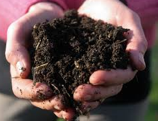
This personal narrative illustrates the role composting has played in the author’s connection to place throughout her adult life, and informs her scholarship today. Over the past twenty-something years she lived in close to twenty different homes, and yet always found space and time to create a compost/planting pile. The outcome is that between her efforts, kitchen scraps, and dishwater the soil gained fertility, and she too connected more deeply with each element. The essay proposes that home and community composting practices can inform our view of learning, shift educational paradigms, and help address the complex environmental and social concerns we face today.
Continue Reading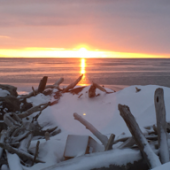
This paper explores the relationships between teacher and student length of habitation and knowledge of place and the process of learning to teach. A qualitative analysis of social studies instructional units developed by Indigenous and non-Indigenous pre-service teachers working in rural and urban school settings across Alaska, considered in relation to the interns’ relationships to the communities where they were teaching provides the foundation for a framework considering the different ways in which place-based education might be enacted. Data analysis addresses the questions of how individual relationships with place impact the integration of place into the classroom, how a new teacher learns to enact place-based teaching in a way that allows his or her students to reap the benefits of this pedagogical mind-set and whether strategies for learning how to teach in a place-based manner vary depending on the contexts in which the students and teachers are situated.
Continue ReadingThis piece examines narratives of place from diverse actors who engage with forests in the Yukon Territory, Canada. In examining personal stories of forest experience, I show how a single locality can be multiple places. In addition, this work focuses on the ways in which stories of experience are also expressions of legitimacy and belonging. What is shown are the varied mechanisms of engagement, the diverse places created, and the voices which are at once individual and influenced by a broader social context. As educators I argue we need to examine overlapping narratives of place. Through focusing on experience the intersecting nature of different localities becomes clear. As does the necessity to situate such narratives within their broader context, one within which experience is a key aspect of determining the legitimacy of land-use voices.
Continue Reading